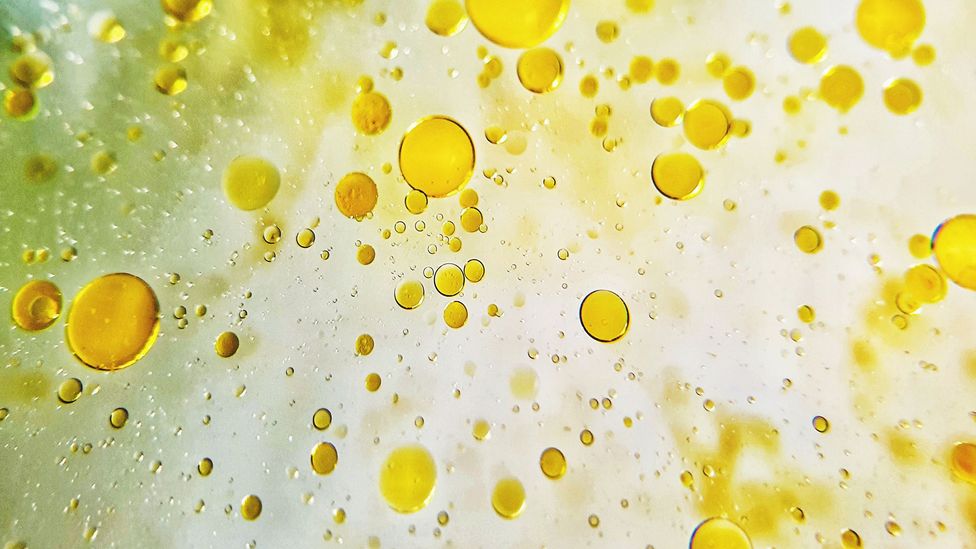Cooking oils are a kitchen staple. But there’s a lot of conflicting information regarding how healthy each of them are. With so many on the shelves – from coconut to olive, vegetable to canola, avocado to rapeseed oil – how do we know which ones to use, and if we should be avoiding any altogether?
Oils used for cooking tend to get their name from the nut, seeds, fruits, plants or cereals they’re extracted from, either by methods of crushing, pressing, or processing. They’re characterised by their high fat content, including saturated fat, monounsaturated and polyunsaturated fatty acids.
In recent years, coconut oil, which is around 90% saturated fat, has become the latest trendy “superfood”. It’s been hailed as a superfood (including that it's less likely to be stored in the body as fat and more likely to be expended as energy) – but one Harvard University epidemiologist calls it “pure poison”.
You might also like:
- The hidden risks of cooking your food
- The world’s most nutritious foods
- Could you survive on just one food?
Consuming too much saturated fat – more than 20g for women and 30g for men per day, according to UK guidelines – makes the body produce cholesterol in our bodies that increases the risk of heart disease.
All fat molecules are made of chains of fatty acids, which are either held together with single bonds (saturated) or double bonds (unsaturated). There are three types of fatty acids: short, medium and long chain. Short and medium chain fatty acids are absorbed directly into the bloodstream and used for energy, but long chain fatty acids are transported to the liver, which raises blood cholesterol levels.
“Coconut oil enjoyed popularity three or four years ago, when there were claims it had a special effect,” says Alice Lichtenstein, Gershoff professor of nutrition science and policy at Tufts University in Massachusetts, US.

Vegetable oils usually contain differing amounts of saturated fat, monounsaturated and polyunsaturated fatty acids (Credit: Getty Images)
“But when you look at studies that compared it with other oils, the results showed it’s high in saturated fat, and no clinical trial supported any initial claims.”
Most randomised controlled trials show that coconut oil increases levels of harmful cholesterol low, density lipoprotein (LDL), which is linked with heart disease and stroke, but it also raises beneficial cholesterol, high density lipoprotein (HDL), which carries LDL away from the bloodstream.
One explanation as to why a food so high in saturated fat could increase HDL cholesterol is because it contains a relatively high amount of lauric acid, which has been found to raise levels of HDL in the blood far more than it does LDL .
Experts advise opting for an oil lower in saturated fat, and higher in other types of fats that are healthier in moderation
But Taylor Wallace, an adjunct professor in the Department of Nutrition and Food Studies at George Mason University in Virginia, argues lauric acid is not as healthy as some claims suggest. It is categorised as a C12 fatty acid, meaning it has 12 carbon atoms, and that puts it at the limit of the definition of a medium chain fatty acid.
“C12s are like long chain fatty acids that got categorised into medium chain,” says Wallace. “About 70% of C12s act as long chain fatty acids, which are transported to the liver.” Longer chain fatty acids are more likely to be stored in the liver as fat and could, over time, cause health issues such as nonalcoholic fatty liver disease.
Instead, experts advise opting for an oil lower in saturated fat, and higher in other types of fats that are healthier in moderation. Polyunsaturated fat, including omega 3 and omega 6, and monounsaturated fat have been found to lower cholesterol levels and provide essential fatty acids and vitamins. They’re found in many different types of vegetable oils, although the exact amount depends both on the plant and the technology process used during their production.

Replacing saturated fats such as butter with olive oil could lead to reduced risk of developing heart disease (Credit: Getty Images)
“Most studies indicate that foods higher in monounsaturated and polyunsaturated fats are associated with lower risk of cardiovascular disease,” says Lichtenstein. “It’s recommended we replace sources of unsaturated fat with polyunsaturated fat, primarily plant-based oils, and nuts and seeds,” she says.
One observational study associated replacing saturated fat with olive oil, for example, with a lower risk of heart disease. Substituting butter, margarine, mayonnaise or dairy fat olive oil reduced the risk by 5 to 7%.
Marta Guasch-Ferre, author of the study and a research scientist Harvard University’s TH Chan School of Public Health’s nutrition department in Boston, analysed the health and diets of more than 100,000 people over 24 years, and found that those with higher intake of all types of olive oil had a 15% lower risk of heart disease.
Olive oil, which is made by crushing olives and separating the oil from their pulp, is renowned for being the healthiest of plant oils
Olive oil’s health benefits can partly be attributed to its monounsaturated fatty acids, which contain vitamins and minerals, and polyphenols, micronutrients derived from plants.
“But it’s not just that you’re adding olive oil into the diet, but that olive oil is substituting other unhealthier fats,” says Guasch-Ferre.
Olive oil, which is made by crushing olives and separating the oil from their pulp, is renowned for being the healthiest of plant oils. One review of research found olive oil has beneficial effects on gut microbiota and heart disease, and that extra virgin olive oil can be beneficial in preventing cancer and type 2 diabetes.

The smaller short chain and medium chain fatty acids in some vegetable oils are dissolved in the blood rather than being stored in the liver (Credit: Getty Images)
“The monounsaturated fatty acids and compounds found in olive oil help prevent noncommunicable diseases, not through any special mechanisms, but because our body needs them,” says Francisco Barba, professor at the University of Valencia’s preventive medicine and public health department in Spain.
Olive oil is synonymous with the Mediterranean diet, which is high in fruit, vegetables and legumes, and low in saturated fat, and is associated with a reduced risk of heart disease, despite the high fat content.
“What makes the Mediterranean diet different from other types of healthy diets is olive oil,” Guasch-Ferre says. “Most other components – nuts, fruit and vegetables – are parts of numerous diets, including plant-based.”
Some research has found that extra virgin olive oil is associated with the most health benefits
However, some research suggests these health benefits could be partly driven by other components in the diet, rather than olive oil. One review of evidence found that the only benefit of olive oil independent of the Mediterranean diet was its ability to raise levels of beneficial cholesterol HDL.
Researchers reviewed 30 studies where participants’ diets were altered to test the effects of olive oil, and found that the Mediterranean diet led to lower glucose levels and higher LDL compared to the Western diet. Intervening that diet with olive oil, where it had a high polyphenol content, further increased HDL.
However, consuming olive oil by following the Mediterranean diet was associated with improved glucose levels, which is associated with a greater risk of developing type 2 diabetes if it is too high. It also reduced the level of triglycerides, a type of fat in the blood, and LDL cholesterol levels.
These studies tested numerous types of olive oil, but some research has found that extra virgin olive oil is associated with the most health benefits, including a possible lower risk of heart disease.

Experts advise opting for an oil lower in saturated fat, and higher in other types of fats that are healthier in moderation (Credit: Getty Images)
Extra virgin olive oil is rich in antioxidants and vitamin E, and researchers have found that it’s better at protecting against LDL cholesterol than other types of olive oil. Other types of olive oil are processed after the oil is extracted, which causes them to lose some nutritional qualities.
Extra virgin olive oil, however, has a lower smoke point, which means it starts to smoke at a lower temperature, and in recent years there have been concerns that this could release harmful compounds, and that some of its benefits are lost through the heating process.
“Extra virgin olive oil is especially beneficial when it’s not cooked, but even under cooking it has a very high percentage of monosaturated fatty acids,” says Barba.
The message isn’t to add lots of oil because we think it’s good for us, because that’s just adding lots of calories – Alice Lichtenstein
Recent studies have shown that extra virgin olive oil is safe to use for cooking. Researchers carried out a number of experiments monitoring extra virgin olive oil as it cooked at 120C (248F) and (338F) on a pan for different lengths of time. They found that temperature, but not time, had some effect on the polyphenol content in the oil.
In 2011, the European Food Safety Authority concluded that makers of olive oil can say it reduces oxidative stress – an imbalance of free radicals and antioxidants in the body – and protects cells and LDL cholesterol from oxidative damage, which can age cells. The researchers carrying out the experiments found that extra virgin olive oil used for cooking still falls within the guidelines for the health claim.
Lichtenstein argues that olive oil doesn’t have any unique properties aside from what you’d normally expect from an oil high in monounsaturated and polyunsaturated fats. But what is clear is that the evidence supports using this and other vegetable oils instead of saturated fats, but to limit our intake of oil in general.
“The message isn’t to add lots of oil because we think it’s good for us, because that’s just adding lots of calories,” she says.
“Once we shift the balance of saturated fat to unsaturated fatty acids, we should then be able to choose the oil we prefer.”
No comments:
Post a Comment